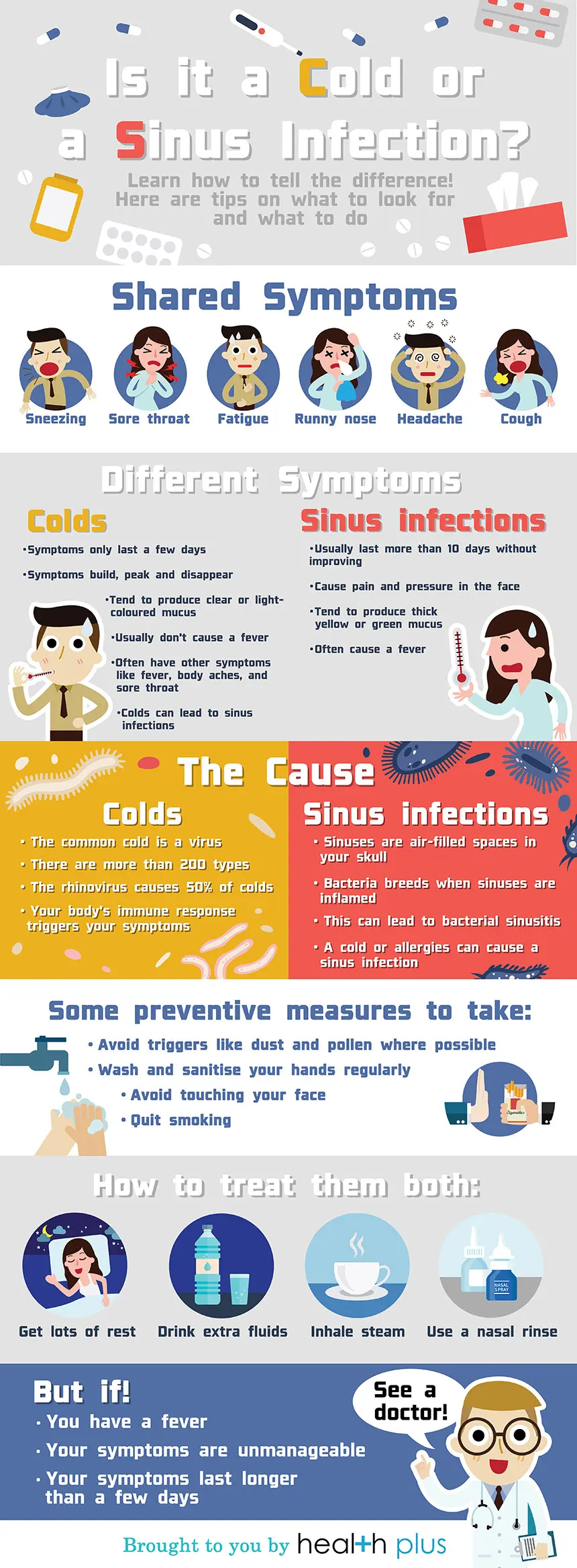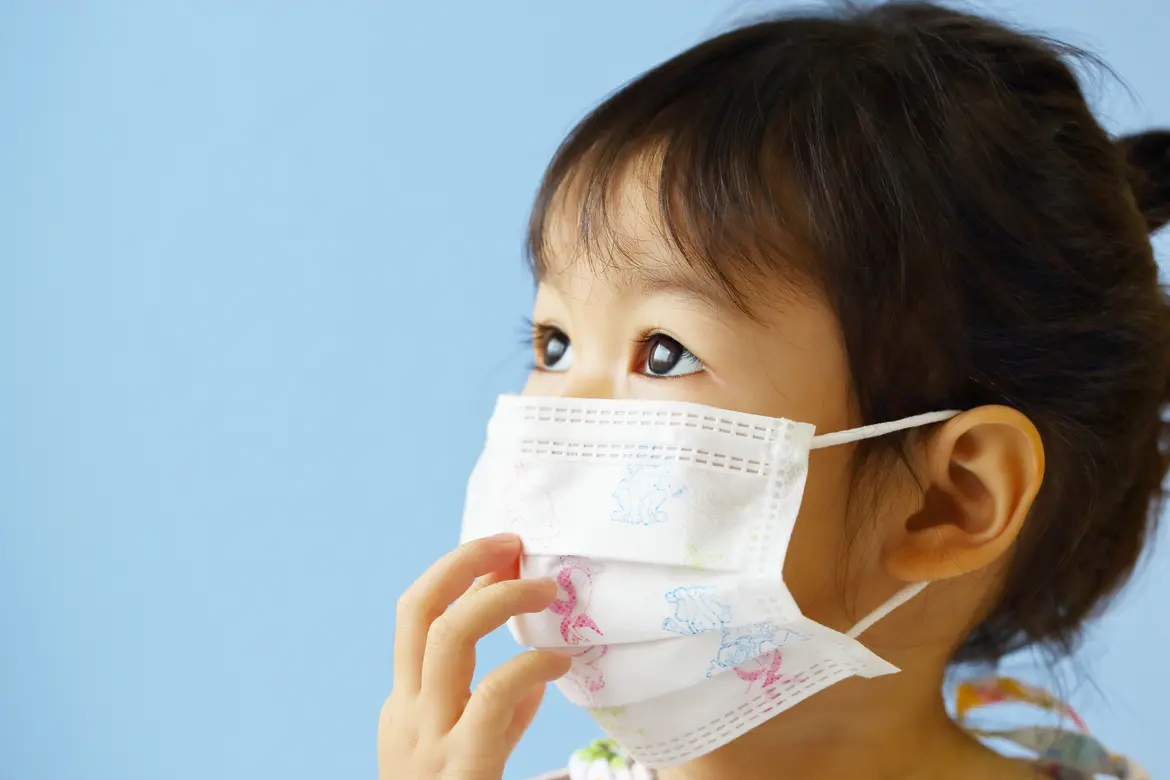Is that sniffle more than it seems?
Dr David Chin, ENT surgeon at Parkway East Hospital, explains the differences between the common cold and a sinus infection.
What is a cold?
The common cold, also known simply as a cold, is a viral infection disease of the nose and upper respiratory tract (throat).
What causes a cold?
Many different respiratory viruses can cause a common cold, but rhinoviruses are the most common.
The common cold can easily spread from an infected person to others through the air and close contact.
The viruses can also spread when you touch your eyes, nose or mouth after touching contaminated objects such as a doorknob or phone.
What is a sinus infection?
A sinus infection, also known as sinusitis, is an inflammation or swelling of the tissue lining the sinuses. The sinuses are spaces in the head that are connected by narrow channels and their main function is to produce mucus to keep the inside of your nose moist. These sinuses can get congested with too much mucus causing bacteria to grow, leading to an infection.
What causes a sinus infection?
A sinus infection is often cause by:
- The common cold
- Asthma
- Allergic rhinitis, a condition caused by allergens
- Nasal polyps, which are small growths in the lining of the nose
- A deviated septum or any other abnormal nose structures
Other causes of sinusitis are:
- A weak immune system due to illness or medications
- Smoking or second-hand smoke inhalation
Tell the difference: Cold vs sinus infection
The symptoms of cold and sinus infection do cross over. They include:
- Sneezing
- Sore throat
- Fatigue
- Runny nose
- Headache
- Cough
But here's how they differ:
| Colds | Sinus infections |
|---|---|
| • Symptoms only last a few days | • Usually last more than 10 days without improving |
| • Symptoms build, peak and disappear | • Cause pain and pressure in the face |
| • Tend to produce clear or light-coloured mucus | • Tend to produce thick yellow or green mucus |
| • Usually don't cause a fever | • Often cause a fever |
| • Often have other symptoms like fever, body aches and sore throat | |
| • Can lead to sinus infections |
How to prevent a cold and a sinus infection?
There are some precautions you can take to reduce your likelihood of catching a cold or developing sinusitis:
Avoiding allergy triggers:
If you are prone to respiratory allergies (i.e, hay fever or allergic rhinitis), ensure that you avoid your allergy triggers as much as possible to prevent a sinus infection.
Maintain basic hygiene:
Washing and sanitising your hands often can ensure that you rid yourself of viruses and germs. Be sure to keep your hands clean and away from your face as much as possible.
Quit smoking:
Smoking can increase the frequency of getting a cold or sinus infection. Smoke can also trigger allergies and prevent removal of mucous, resulting in symptoms lasting longer.
Keep hydrated:
Water keeps your mucus thin and loose and can prevent mucus from clinging onto your nasal passageways that may trap dirt and germs.
Treating a cold and a sinus infection
- Stay hydrated. Consume plenty of fluids, such as water, juices and clear broths. Avoid caffeine and alcohol as they have a dehydrating effect.
- Inhale steam to clear sinus passages and ease sinus pressure.
- Use a nasal rinse to unblock the nose by gently rising the nasal and sinus cavities.
- Get plenty of rest
But if you have a fever, or if your symptoms are unmanageable or last longer than a few days, consult a doctor.













